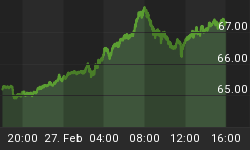Eurasia is a region rich with natural resources, but it’s also a key region for superpowers to carry out geopolitical power plays. It’s the heart of Russia’s oil and gas pipeline system, and arguably one the most important pieces of China’s gigantic One Belt One Road puzzle. But recently, several Eurasian nations are taking steps to harness their resources in order to achieve a financial boost in the form of bitcoin mining.
Georgia
When looking at the most important countries for cryptocurrencies, it’s easy to omit the small, ex-Soviet nation of Georgia. With less than 4 million people, Georgia flies under the radar, but it actually takes the number two spot in the world’s multi-billion-dollar bitcoin mining industry, coming in after China.
Due in large part to the region's excess hydropower and supportive regulation, Georgia was able to boost its cryptocurrency mining power use to 85MW, which puts it miles ahead of its nearest competitor, Iceland, which clocks in at 36MW.
Georgia is an anomaly in the world of bitcoin mining. With only a $17 billion gross domestic product (GDP), it is easy to see why the country might embrace the new digital trends sweeping the world.
While the world races to regulate, ban, or dismiss bitcoin and cryptocurrencies, Georgia is looking to create a supportive environment for miners. Additionally, it offers support to foreign entities looking to do business within the country. In fact, Georgia is ranked 9 out of 200 in the World Bank’s “Ease of Doing Business” survey.
United States based BitFury, accounting for approximately 10 percent of the world’s mining industry market share, played a huge role in Georgia’s bitcoin boom. Related: Venezuela Offers Discount Crude For Crypto
In 2016, BitFury built one of the world’s largest mining operations on the outskirts of Tbilisi, a $100-million-dollar data center spanning 18 hectares in the city’s tax-free industrial zone. The initiative was a part of the Georgian Technology project with the help of a government sponsored “Co-investment” fund, which opposing parties argue was largely influenced by the country’s ex-Prime Minister, Bidzina Ivanishvili.
Additionally, some have suggested that, due to the data center’s high power consumption, local energy bills for average consumers skyrocketed.
In a statement, the company denied that they were receiving lower tariffs for electricity usage, releasing their consumption and tariffs paid to the public. BitFury also denied that Ivanishvili held any shares in the company. Though the company has denied any and all special treatment it is worth noting that the vice chairman of Bitfury's board, George Kikvadze, also has a senior role on Ivanishvili's fund.
While BitFury still has a presence in Georgia, the company has since sold its mega-mining center to Chinese Chong Sing Holdings.
Armenia
Though Georgia has stolen the headlines in Eurasia, Armenia is looking to get in on the action, as well.
In February, Armenia moved to create new supportive legislation for bitcoin mining. In the initial draft, it was even proposed that bitcoin miners would be allowed to operate tax-free until 2023.
Edmon Marukyan, member of the Armenian Parliament noted: “We studied the experience of Belarus, Estonia, Germany, Israel and the United States and came to the conclusion that we should liberalize the industry. If we chose to impose restrictions, the mine farms will be moved to Georgia.”
Additionally, the Armenian Blockchain Forum has promoted the idea of creating a free economic zone to host international AI, blockchain, and tech projects. The forum estimates the project could create as many as 1,500 high paying jobs and draw as much as $120 million in international investments. The Meghri free economic zone, which was launched in December, offers a promising new source of revenue for the country. Related: The Bitcoin Bulls Have Been Let Loose
ECOS-M, a mining equipment distributer, has even announced that a 50MW data center is already being built in the Meghri free economic zone, using thermal energy to power the project, with plans to scale up to a possible 200MW operation within years.
Across the Caspian Sea
As Georgia and Armenia face off for mining dominance within the region, opportunities are also arising on the other side of the Caspian Sea.
Uzbekistan, one of the world’s cheapest places to mine bitcoin, is racing to create supportive legislation for both fintech applications and cryptocurrencies. Because the country enjoys low-cost and abundant electricity, it could potentially try to follow other initiatives in the region.
While neighboring Kazakhstan, which once hoped to create its own state-sponsored cryptocurrency, moves to ban both crypto exchanges and mining, Kyrgyzstan is taking an opposite approach.
Kyrgyzstan Prime Minister Sapar Isakov recently announced plans to legalize and encourage cryptocurrencies in projects financed by the government with the goal of increasing efficiency and transparency which he hopes will have a ripple effect throughout the economy. Isakov noted: “Using cryptocurrencies will reduce corruption. We’ll be able to optimize government spending and increase budget receipts. We want to be a digital society!”
With cryptocurrencies coming into their own in Eurasia, the implications of adoption could be huge. As a region highly dependent on neighboring superpowers, the initiatives to harness emerging technologies and attract international investment could very well be the key to ushering in a new era of financial independence.
By Michael Kern via Crypto Insider
More Top Reads From Safehaven.com:
















